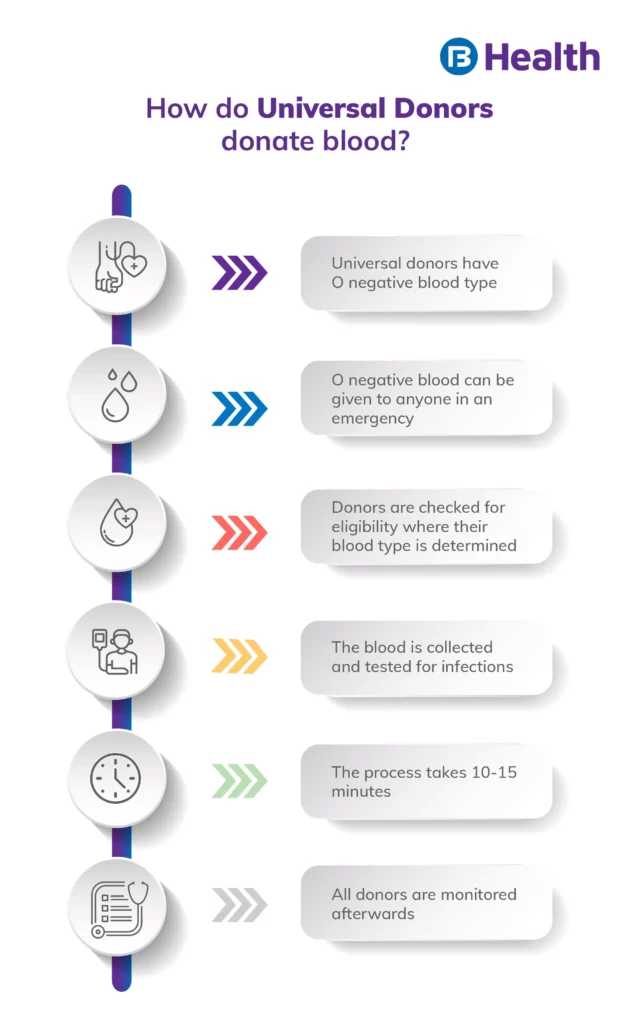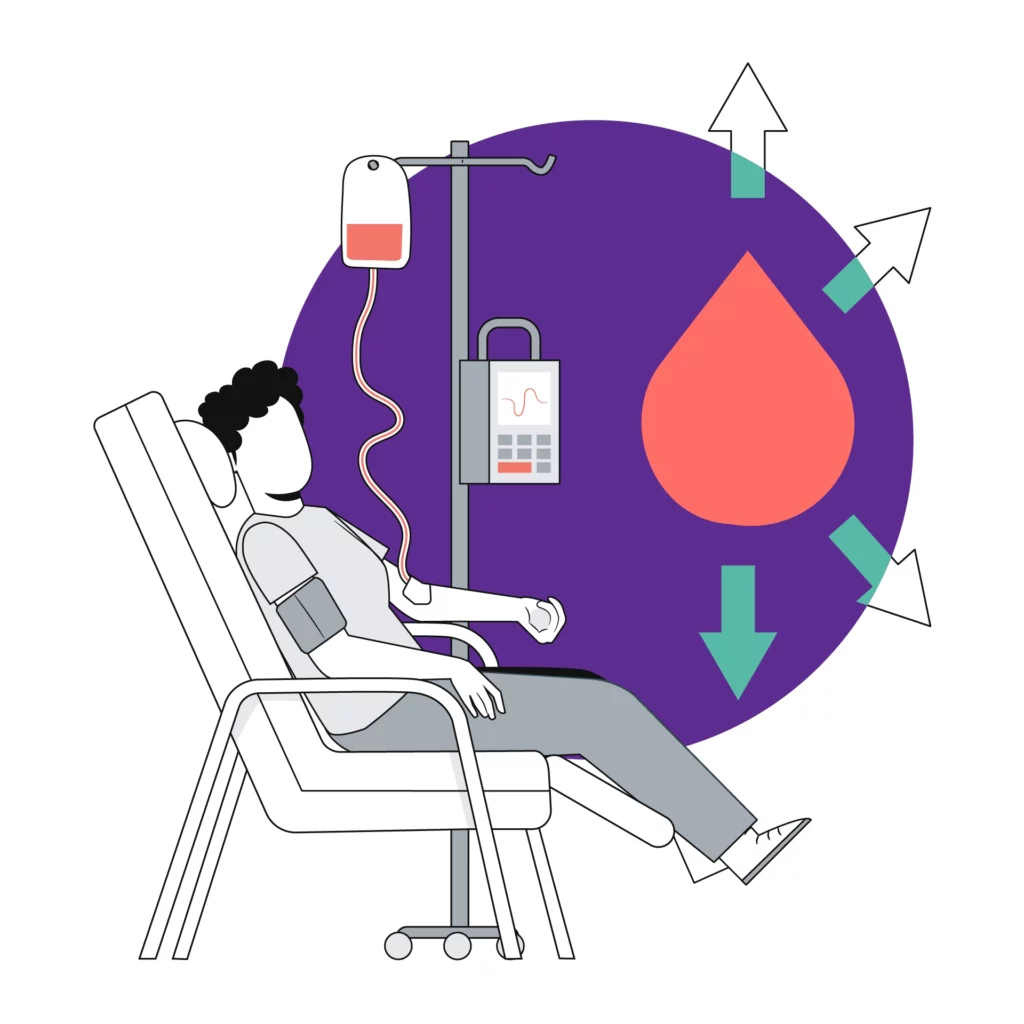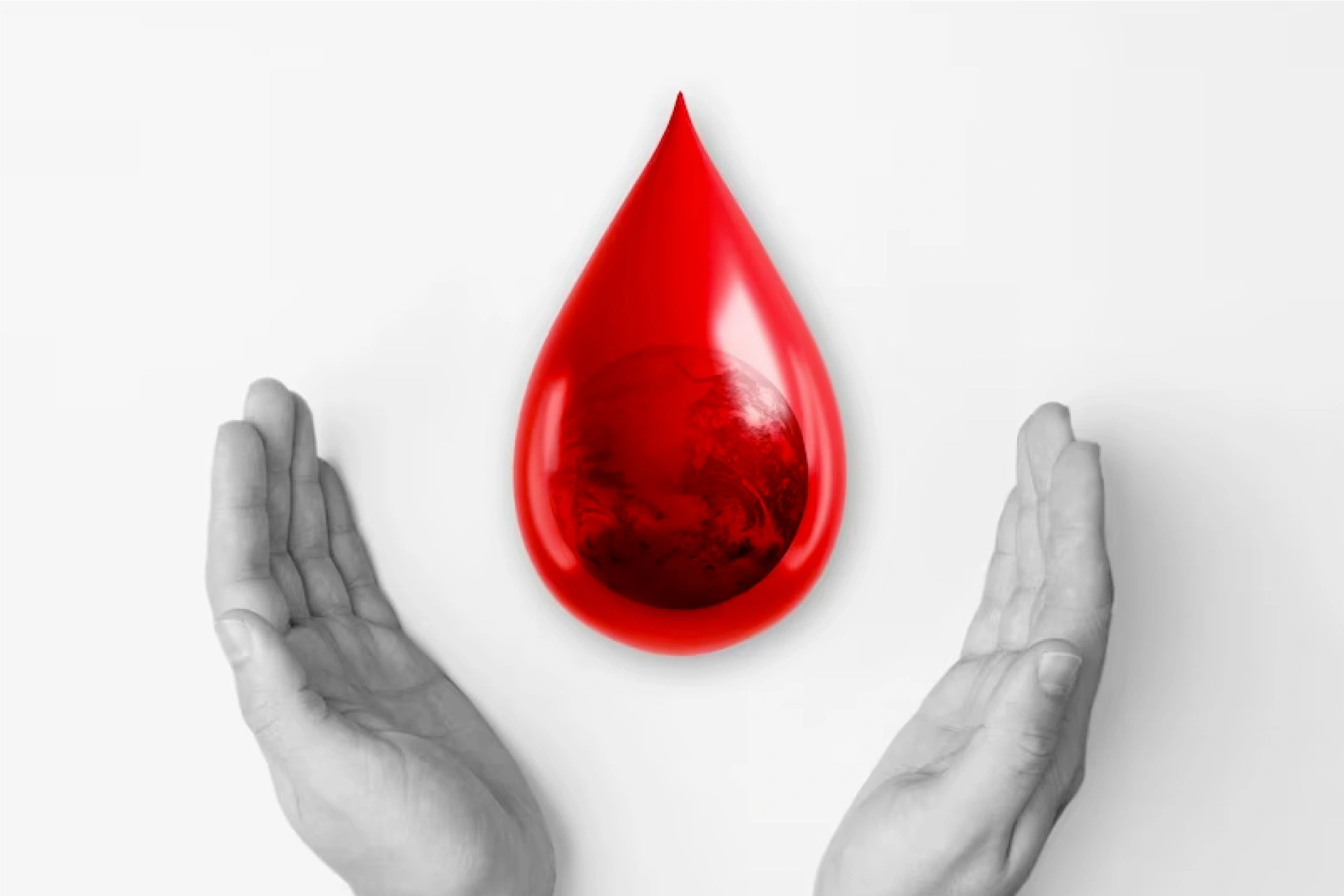General Health | min read
Tips to Understanding the Universal Blood Donor Type
Medically reviewed by
Table of Content
Synopsis
Discover the significance of the universal donor blood type in saving lives, the different types of blood groups, and why it's essential to know your blood type. We'll also delve into the process of checking one's blood group and debunk myths surrounding blood groups.
Key Takeaways
- The universal donor blood type is fixed, and it is O negative. It can be given to anyone in need during emergencies
- The presence or absence of specific antigens and antibodies determines blood types
- It's crucial to match blood types during transfusions to prevent complications
Who is a universal blood donor?
There is a specific universal blood donor group and a universal blood group that all healthcare practitioners follow worldwide. Blood is a vital component of our body, and its importance is immeasurable. In emergencies, the availability of the right blood type can save a life. Everyone has a specific blood type, and knowing your own can help you become a lifesaving donor.
In this article, we'll explore what the universal donor blood type is, how it's determined, which blood types are universal donors, why it's essential to know your blood type, blood types and transfusions, the process of checking your blood group, and myths related to blood groups.
Additional Read: Different blood groups
Who Is a universal blood donor?
A universal blood donor is someone whose blood type can be transfused to anyone in need, regardless of their blood type. The universal blood donor type is O negative. This means that people with this blood type have red blood cells that do not have any A, B, or Rh antigens on their surface. Therefore, their blood is not rejected by any recipient's immune system.
Universal recipient blood group
The universal recipient blood group is blood group AB+. This blood group is considered universal because it can receive blood from any other group without adverse reactions. Blood group AB+ has both A and B antigens on the surface of its RBCs (Red Blood Cells) and Rh factor, a protein that can be either present or absent. The presence of A and B antigens means that individuals with blood group AB+ can receive blood from individuals with blood group A, B, AB, or O without any negative reactions, making them universal recipients. However, individuals with blood group AB+ can only donate blood to other individuals with blood group AB+. Since they have both A and B antigens, their blood is incompatible with individuals with only A or B antigens.
It is important to note that although individuals with blood group AB+ are considered universal recipients, there are still risks associated with blood transfusions, such as allergic reactions, infections, and transfusion reactions. Therefore, blood transfusions should only be performed when necessary and under the supervision of a trained medical professional.
Additional Read: World Blood Donor Day

How is the blood type determined?
Different factors determine the universal donor blood group. The presence or absence of specific antigens and antibodies in the blood determines the blood type. Antigens are proteins on the surface of RBCs (Red Blood Cells) that trigger an immune response if they're foreign to the body. Antibodies are proteins in the plasma that can recognize and destroy foreign antigens.
There are four main blood types in humans: A, B, AB, and O. Each blood type is fixed by the presence or absence of the A and B antigens on the surface of the red blood cells. Blood type O has no A or B antigens, while blood types A and B have only one type of antigen. Blood type AB has both A and B antigens.
Additionally, the A and B antigens and the Rh factor are also important for blood typing. It's a protein on the surface of RBCs that can trigger an immune response. People with the Rh factor are Rh positive, while those without are Rh negative.
Additional Read: World Marrow Donor Day
Which blood group types are universal donors?
The universal blood donor type is O negative. This means that people with this blood type can donate their blood to anyone in need, regardless of their blood type. However, o-negative blood is often in high demand during emergencies when there's no time to determine a patient's blood type.
Additional Read: HbA1c Normal Range
Why do you need to know your blood type?
Knowing your blood type is crucial for your own health and the health of others. For example, in an emergency, knowing your blood type is essential to receive the right type of blood transfusion if needed. Additionally, blood types can affect a person's risk of certain diseases and conditions. For example, people with blood type O have a lower risk of developing or suffering from heart disease and pancreatic cancer than those with other blood types.
What are blood types and transfusion?
Blood transfusion is an important process of giving blood or blood products from one person (the donor) to another (the recipient). Blood transfusions can be lifesaving for people who have lost blood due to injury or surgery or have a condition that affects their ability to make blood.
The donor's blood is matched with the recipient's blood type during a blood transfusion to avoid a transfusion reaction. A transfusion reaction occurs when the recipient's immune system attacks the donor's red blood cells, which can cause serious complications or even death.

What is the process for checking one's blood group?
The process of checking one's blood group involves a simple blood test. The test is typically done in a laboratory or a medical setting, and it involves taking a small sample of blood from the person's vein. The blood sample is then analyzed to determine the person's blood type.
Myths related to blood groups
There are many myths related to blood groups, and they are as follows:
- The belief is that people with blood type O are more attractive to mosquitoes
- Blood type can determine a person's personality traits or intelligence level
However, there's no scientific evidence to support these claims. Therefore, relying on information and medical expertise regarding blood groups and their impact on health is essential.
Knowing your blood type is crucial for your health and the health of others. The universal donor blood type, O negative, can be given to anyone in need and is often in high demand during emergencies. It's also essential to match blood types during transfusions to prevent complications.
At Bajaj Finserv Health, we understand the importance of seeking medical advice when it comes to your health. You can get doctor consultations online, which offers a convenient way to consult with medical experts from the comfort of your home. You can even schedule a general physician appointment to learn more about your health. Don't hesitate to seek medical advice when you need it the most.
Frequently Asked Questions
References
- https://www.redcrossblood.org/donate-blood/how-to-donate/how-blood-donations-help/blood-needs-blood-supply/blood-types.html
Disclaimer
Please note that this article is solely meant for informational purposes and Bajaj Finserv Health Limited (“BFHL”) does not shoulder any responsibility of the views/advice/information expressed/given by the writer/reviewer/originator. This article should not be considered as a substitute for any medical advice, diagnosis or treatment. Always consult with your trusted physician/qualified healthcare professional to evaluate your medical condition. The above article has been reviewed by a qualified doctor and BFHL is not responsible for any damages for any information or services provided by any third party.





